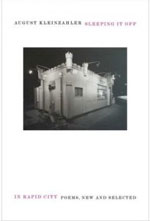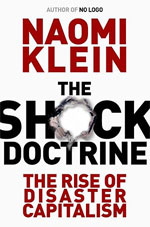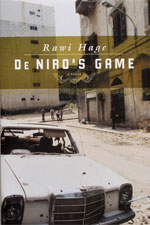
I am loving Kleinzahler’s jaunty juxtaposition of high-falutin’ references with down-to-earth commentary. Having heard him read and give speeches, it’s great to hear his voice in my head as I’m reading his words. I go back to this wonderful, funny, moving speech of his all the time:
http://www.griffinpoetryprize.com/awards-and-poets/speeches/august-kleinzahler-2005-awards/
One of my favourite poems from “Rapid City” is thematically similar to Kleinzahler’s “The Strange Hours Travellers Keep”, about the disorientation that travellers feel in places like indistinguishable hotel rooms:
On waking in a room and not knowing where one is
There is a bureau and there is a wall
and no one is beside you.
Beyond the curtains only silence,
broken now and again by a car or truck.
And if you are very still
an occasional drip from the faucet.
Such are the room’s acoustics
it is difficult to place exactly where from.
Also, the tick of the clock.
It is very dark.
There exist all manner of blacks,
lampblack, for instance,
much favored by the ancients,
so deep and so dense
and free of any shade of gray
or brown. But this,
this dark is of another order,
compounded of innumerable shadows,
a weave of them.
One is able to make out shapes.
It is not restful, to be like this, here,
nor is it a fearful place.
In a moment or two you will know
exactly where you are,
on which side of the door,
your wallet, your shoes,
and what today you’ll have to do.
Cities each have a kind of light,
a color even,
or set of undertones
determined by the river or hills
as well as by the stone
or their countless buildings.
I cannot yet recall what city this is I’m in.
It must be close to dawn.








